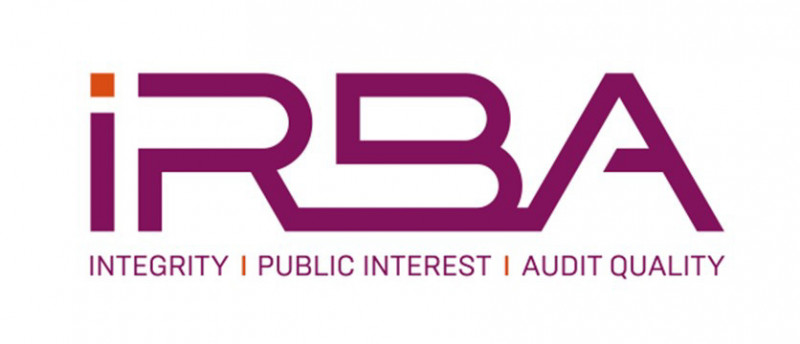CATEGORIES
- (3) Negotiating Tax Debt and Payment Arrangements with SARS
- (2)Account / Profile
- (549)Accounting
- (2)Accounting and Finance
- (28)Audit
- (156)Auditing and Assurance
- (1)Business
- (1)Business Management
- (3)Business Rescue
- (101)CIPC
- (7)Compliance
- (18)Ethics and Professionalism
- (46)Financial Reporting
- (1)Government Funding Applications
- (4)Guides
- (1)Individuals Tax
- (26)Law
- (37)Legal and Compliance
- (2)Management
- (10)Miscellaneous
- (28)Money Laundering
- (1)Personal & Professional Development
- (2)Practice Management
- (2)Professional Ethics
- (3)Public Sector
- (145)Regulatory Compliance and Legislation
- (41)SARS Issues
- (27)Sustainability Reporting
- (37)Tax
- (1)Tax Update
- (9)Technology
- (1)Wills, Estates & Trusts
- Show All
IRBA Code: Final Pronouncement on Technology-related Revisions
- 14 November 2023
- Auditing and Assurance
- South African Accounting Academy

These technology-related revisions will guide the ethical mindset and behaviour of registered auditors, as they take advantage of the opportunities technology is creating and adapting to new technology. Developed to remain relevant and applicable in the ever-evolving landscape of technology transformation, the revisions apply to the use of any technology, including, to the extent possible, future technologies.
Significant Amendments
The approved amendments focus on several key areas, including:
-
Professional Skills (Section 113);
-
Confidentiality (Section 114);
-
Complex Circumstances (Section 120);
-
Use of Technology (Sections 300 and 320);
-
Close Business Relationships (Section 520); and
-
Hosting (Subsection 606).
These amendments highlight the importance of professional competence and due care as well as confidentiality and also address complexity, particularly in the context of technology-related developments.
Key Changes and Practical Implications
-
Professional Competence and Due Care: The revisions underscore the need for registered auditors to assess their competence to handle engagements, especially in technology. This emphasises the importance of staying updated with technological advancements.
-
Confidentiality: The amendments highlight the critical nature of maintaining confidentiality throughout the data collection process, and provide guidelines in circumstances where authorisation to use or disclose confidential information may be required.
-
Complexity: Registered auditors are now required to address inherent complexities in their professional services explicitly. This includes managing uncertainties, monitoring changes in facts and circumstances, and investigating uncertain elements.
-
Use of Technology: Registered auditors may have to adapt their policies and methodologies to identify and evaluate threats associated with technology use, and also improve their understanding of the impact on engagements.
-
Independence Standards: Registered auditors may need to review and update their independence policies and processes, particularly in relation to technology-related non-assurance services provided to audit clients.
South African Adaptations and Amendments to the IRBA Code
Consistent with the extant IRBA Code of Professional Conduct for Registered Auditors (Revised April 2023) (IRBA Code), the reference to "professional accountant" and/or "accountant" in the amendments to the IRBA Final Pronouncement has been replaced with the term "registered auditor".
It should be noted that paragraphs R113.4 SA, R300.5, 300.5 A1 SA and 300.5 A1, which contain South African Adaptations and Amendments, are not affected by these revisions and have been carried over from the extant IRBA Code without further amendments.
Effective Date
-
Revisions to Parts 1 to 3 will be effective as of 15 December 2024.
-
Revisions to Part 4A will be effective for audits and reviews of financial statements for periods beginning on or after 15 December 2024.
-
The conforming and consequential amendments to Part 4B in relation to assurance engagements with respect to underlying subject matters covering periods of time will be effective for periods beginning on or after 15 December 2024; otherwise, these amendments will be effective as of 15 December 2024.
Click here to download the Final Pronouncement:
https://www.fic.gov.za/wp-content/uploads/2023/10/2023.9-%E2%80%93-FIC-Annual-Report-2022-2023.pdf
Relevance to Auditors, Independent Reviewers & Accountants:
-
Registered Auditors have to adhere to the IRBA Code of Conduct.
-
Accountants have to adhere to the IESBA Code of Conduct.
-
This publication provides detail on some issues flowing forth from the recently Revised IESBA Code and sets out the new final amendments and enhancement regarding technology-related issues. It also incorporates the SA adaptations.
-
The amendments will guide the ethical mindset and behaviour of professional accountants in business and public practice as they deal with changes brought by technology in their work processes and the content of their services.
-
Adherence to the Code will assist with the proper application of the ethical principles.
Relevance to Your Clients:
-
None.






